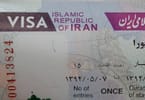HALEIWA, Hawaii, USA; BRUSSELS, Belgium; VICTORIA, Seychelles – As part of this year’s World Conservation Congress in Jeju, Korea, the World Local Governments Summit Forum is a special event that shares cases of “green growth” policy in Korea implemented and run by local governments. It discusses the common vision of a “Global Environmental Capital Project” to propel Jeju to be one, drafts approaches and a cooperation system at the local government level with international organizations such as the IUCN, and helps the Summit be a representative environmental forum of Jeju, such as the Jeju Forum for Peace & Prosperity.
The World Local Governments Summit Forum will be held from September 4-6, 2012 at the Phoenix Island Resort on Jeju Island in South Korea. President of the International Council of Tourism Partners (ICTP) Professor Geoffrey Lipman will be delivering an address on green growth and travelism for local communities at the Governor’s Conference.
Professor Geoffrey Lipman said: “I am particularly pleased to reflect on this issue as President of ICTP (International Council of Tourism Partners), a global coalition of travelism destinations committed to green growth and quality.
“Governments, industry, and civil society around the world are urgently focusing on green growth as the best strategy to overcome economic crises, climate change, resource depletion, and poverty elimination. They are looking for ways to create a fairer more equitable, happier society.
“What is as yet not clear is how to shift from recognition and aspiration to action and measurable delivery. And to do this progressively, with a scale and scope that will ultimately affect all consumption, production, and investment on the planet – inside our sector and in the world where we operate.
“’Glocalization’ will be a central pillar of that future, the critical importance of taking global concepts and frameworks, through regional and national filters, and translating them into programs, projects, and action at the local level.
“Rio+20, like its game changing predecessor, was an important waypoint on the journey. But only a waypoint – Rio+30 and 40 will be even more telling. What is even more significant is the direction we chart and our commitment to keep on the path as seemingly insurmountable obstacles emerge – political, economic, social, natural, and in some cases, just happenstance. It is a multi-decade journey not an event.
“On this journey, travelism – the entire customer, company, community value chain can play a much more significant role in this transformation, creating jobs, boosting trade, driving infrastructure, encouraging investment, supporting development, and in the process, increasing human well-being and happiness, if it is done properly, if we ensure that the process is inculcated in our evolving policies and equally important built into our learning systems. We must ensure that tomorrow’s decision makers understand the basics of the green growth paradigm and the contribution that the travelism phenomena can make.
“Two recent initiatives in which I am involved, with my colleague Maurice Strong, are relevant:
• Green Growth and Travelism – Letters from Leaders was launched at Rio+20 to
advance this process. Bringing into play the thoughts of leaders inside and outside our sector to help define the new framework for today’s decision makers
• The development of a Green Growth and Travelism Institute as a component of an evolving World Environment University to help build new learning systems that embrace the framework for tomorrow’s decision makers.
“It is very appropriate to consider these matters here in Jeju – a travelism, green growth and learning center, and more so as IUCN – the global conservation leader – prepares for its Congress. I congratulate the Governor on launching this important reflection.”
ABOUT ICTP
The International Council of Tourism Partners (ICTP) is a grassroots travel and tourism coalition of global destinations committed to quality service and green growth. The ICTP logo represents the strength in collaboration (the block) of many small communities (the lines) committed to sustainable oceans (blue) and land (green). ICTP engages communities and their stakeholders to share quality and green opportunities including tools and resources, access to funding, education, and marketing support. ICTP advocates sustainable aviation growth, streamlined travel formalities, and fair coherent taxation. ICTP supports the UN Millennium Development Goals, the UN World Tourism Organization’s Global Code of Ethics for Tourism, and a range of programs that underpin them. The ICTP alliance is represented in Haleiwa, Hawaii, USA; Brussels, Belgium; Bali, Indonesia; and Victoria, Seychelles.
ICTP has members in Anguilla; Aruba; Bangladesh; Belgium, Belize; Brazil; Canada; Caribbean; China; Croatia; Germany; Ghana; Greece; Grenada; India; Indonesia; Iran; Korea (South); La Reunion (French Indian Ocean); Malaysia; Malawi; Mauritius; Mexico; Morocco; Nicaragua; Nigeria; Northern Mariana Islands (USA Pacific Island Territory); Sultanate of Oman; Pakistan; Palestine; Philippines; Rwanda; Seychelles; Sierra Leone; South Africa; Sri Lanka; Sudan; Tajikistan; Tanzania; Trinidad & Tobago; Yemen; Zambia; Zimbabwe; and from the US: Arizona, California, Florida, Georgia, Hawaii, Illinois, Maine, Missouri, Utah, Virginia, and Washington.
Partner associations include: African Bureau of Conventions; African Chamber of Commerce Dallas/Fort Worth; Africa Travel Association; Boutique & Lifestyle Lodging Association; Caribbean Tourism Organization; Countrystyle Community Tourism Network/Villages as Businesses; Cultural and Environment Conservation Society; DC-Cam (Cambodia); Euro Congres; Hawaii Tourism Association; International Delphic Council (IDC); International Foundation for Aviation and Development, Montreal, Canada; International Institute for Peace Through Tourism (IIPT); International Organization of Electronic Tourism Industry (IOETI), Italy; Positive Impact Events, Manchester, UK; RETOSA: Angola – Botswana – DR Congo – Lesotho – Madagascar – Malawi – Mauritius – Mozambique – Namibia – South Africa – Swaziland – Tanzania – Zambia- Zimbabwe; Routes, SKAL International; Society for Accessible Travel & Hospitality (SATH); Sustainable Travel International (STI); The Region Initiative, Pakistan; The Travel Partnership Corporation; vzw Reis-en Opleidingscentrum, Gent, Belgium; WATA World Association of Travel Agencies, Switzerland; as well as university and educational institute partners.
For more information, go to: www.tourismpartners.org .
WHAT TO TAKE AWAY FROM THIS ARTICLE:
- It discusses the common vision of a “Global Environmental Capital Project” to propel Jeju to be one, drafts approaches and a cooperation system at the local government level with international organizations such as the IUCN, and helps the Summit be a representative environmental forum of Jeju, such as the Jeju Forum for Peace &.
- “On this journey, travelism – the entire customer, company, community value chain can play a much more significant role in this transformation, creating jobs, boosting trade, driving infrastructure, encouraging investment, supporting development, and in the process, increasing human well-being and happiness, if it is done properly, if we ensure that the process is inculcated in our evolving policies and equally important built into our learning systems.
- • The development of a Green Growth and Travelism Institute as a component of an evolving World Environment University to help build new learning systems that embrace the framework for tomorrow's decision makers.






















